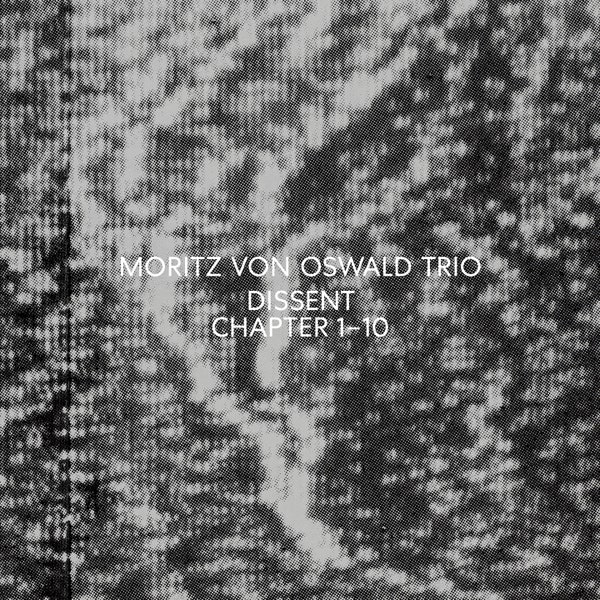The new Moritz von Oswlad Trio dance between the synthetic and organic on dazzling new album, ‘Dissent’
Image by Charlotte Duale
The Moritz von Oswald Trio has always been a bit of a revolving door of collaborators, held in place by the common denominator of von Oswald himself. Subsequently, the music from the German record producer and composer’s group has always changed shape somehow, presenting a myriad of variations to von Oswald’s own dub-techno arsenal. The trio’s latest incarnation sees von Oswald joined by jazz percussionist Heinrich Köbberling and avant-garde electronic artist Laurel Halo. Dissent, the first long play release from the revised Trio is a collection of work produced during improvisational jam sessions that took place in Berlin at the end of 2020. The result takes the form of ten electronic-jazz ‘chapters,’ bookended on the album by a preface and epilogue. Dissent is released on BMG’s recently formed experimental division, Modern Recordings.
Our first taste of Dissent came earlier this year with the single release of Chapter 4, followed by the spectral Chapter 6, both of which alluded towards the improvisational nature of what would become Dissent’s sound. The freedom of the Trio’s ‘jam sessions’ is immediate; the music flows with a sense of spontaneity and syncopation, but there is an awareness of space and each other that only comes from the masterful ability to listen and respond. To this effect, there’s a conversational tonality to the music. Each chapter is a sort of sonic dialogue that the three artists engage in by way of their respective instrumentation. The voice of each remains clear throughout; sometimes they lead the conversation, at others they add phrases and accents that shade the music but never speak over each other. Often, the influence of the leader is distinct. von Oswald seems to take charge from Chapter 5, which feels like house music in a vacuum. A steady and brassy four-on-the-floor in a state of being pulled into the ether so our experience of it is cavernous and full of space. This drops abruptly into the gloaming, bass heavy throb of Chapter 6 which wallows with distorted, juxtaposed strings to create an eerie sense of alienation. The atmosphere of austerity is heightened by a barely-there percussive response from jazz drummer Heinrich Köbberling, who then assumes the lead on the analogous polyrhythmic percussion of Chapter 7. Intriguingly, this conversationality finds a lingua-franca from the shapes and forms of each respective artist’s style, bending and reshaping them in order to speak to each other.
The mood of the album is mostly at the behest of Halo’s synth work, whose ambient washes and waves determine the mise-en-scene of most of Dissent’s chapters. Sometimes thrumming and bright, vibrant and electric and at others distorted and perturbed, Halo’s work forms a tonal framework within which the context of the other sounds are formulated. While most of Dissent fixates on darker leaning experimentations, there are moments of bright sophistication. Chapter 8 is a stylish, loungey jazz take with a subtle bass throb that elevates the experience beyond the speakeasy. Chapter 9 follows with a happy-go-lucky gait and a twinkling synth modulation. The set closes on Epilogue, on which von Oswald’s dub-techno inclinations are on full display. It’s a basement rave cut accented with organic, brassy hi-hats from Köbberling and wonky Fender slides in place of sci-fi synth progressions.
This interchanging and intermeshing of the synthetic with the organic is Dissent’s greatest strength. There’s a deft originality in the way the Trio fuse the electronic with the organic without disguising or compromising either element. Rather, the organic becomes a substitute for the electronic and vice versa to create a tapestry in which both are essential players. In doing so, Dissent keys in on the innate similarities between analogue jazz and electronic music, both forms rooted in experimentation and improvisation and on Dissent, the Trio recognise and emphasise this shared spirit to formulate succinct and seamless pieces of sound design. Dissent is a remarkably accomplished body of work, a yardstick for collaboration done right. The journey is a fully realised trip through the phases and phrases of the creative process embarked on by the Trio, from the distorted opening muddle of the Preface to the fully charged pulse of the Epilogue. Though presumably much of the music is born from play, the level of refinement can only be the work of masters at play with each other. Dissent refuses to be anything that it isn’t; each element finds its place in the design. It’s texturally rich and technically near perfect, making it surprisingly easy to get lost in the aural allure of von Oswald’s avant-garde extrapolations.
Follow Moritz von Oswald



